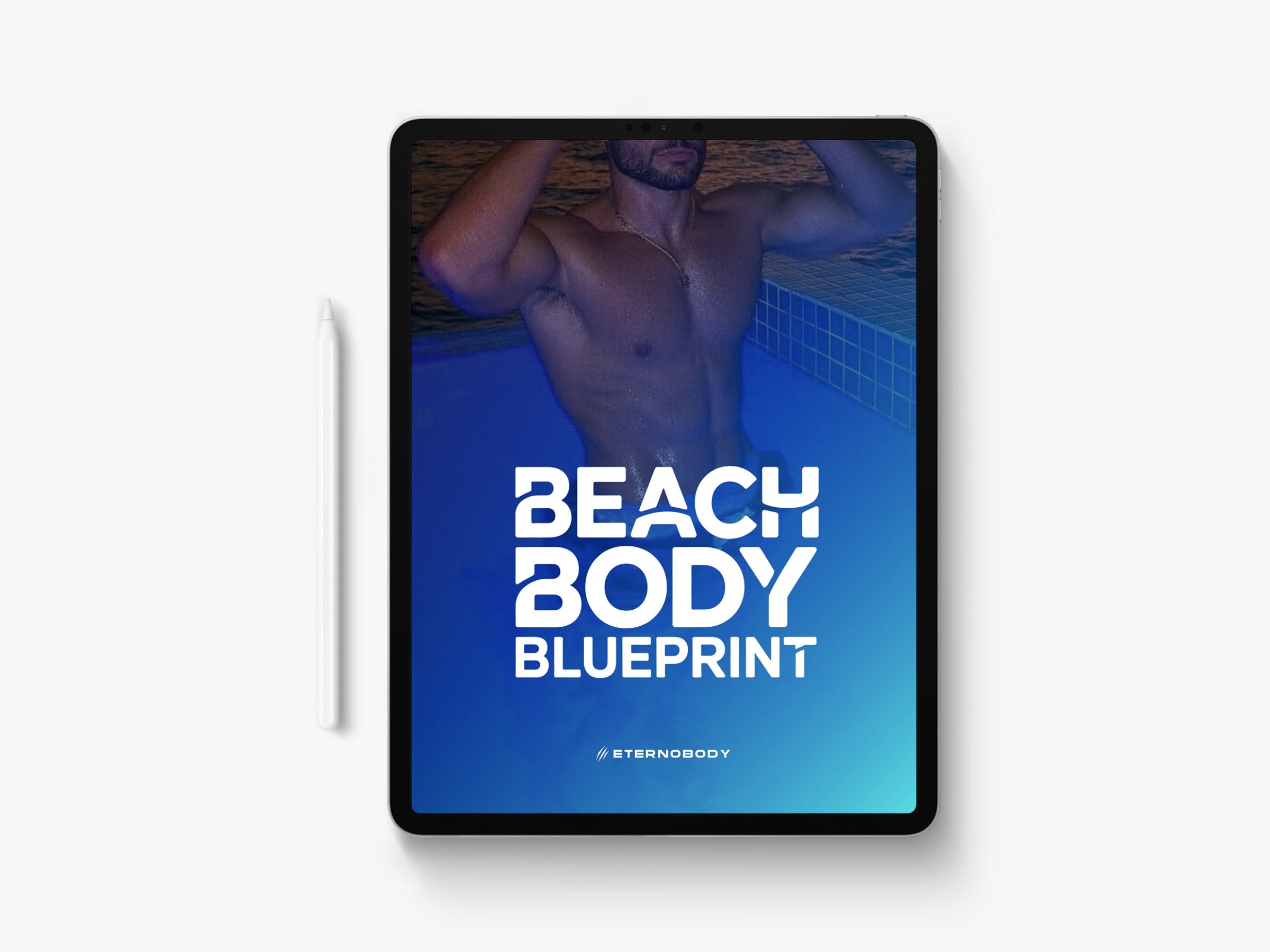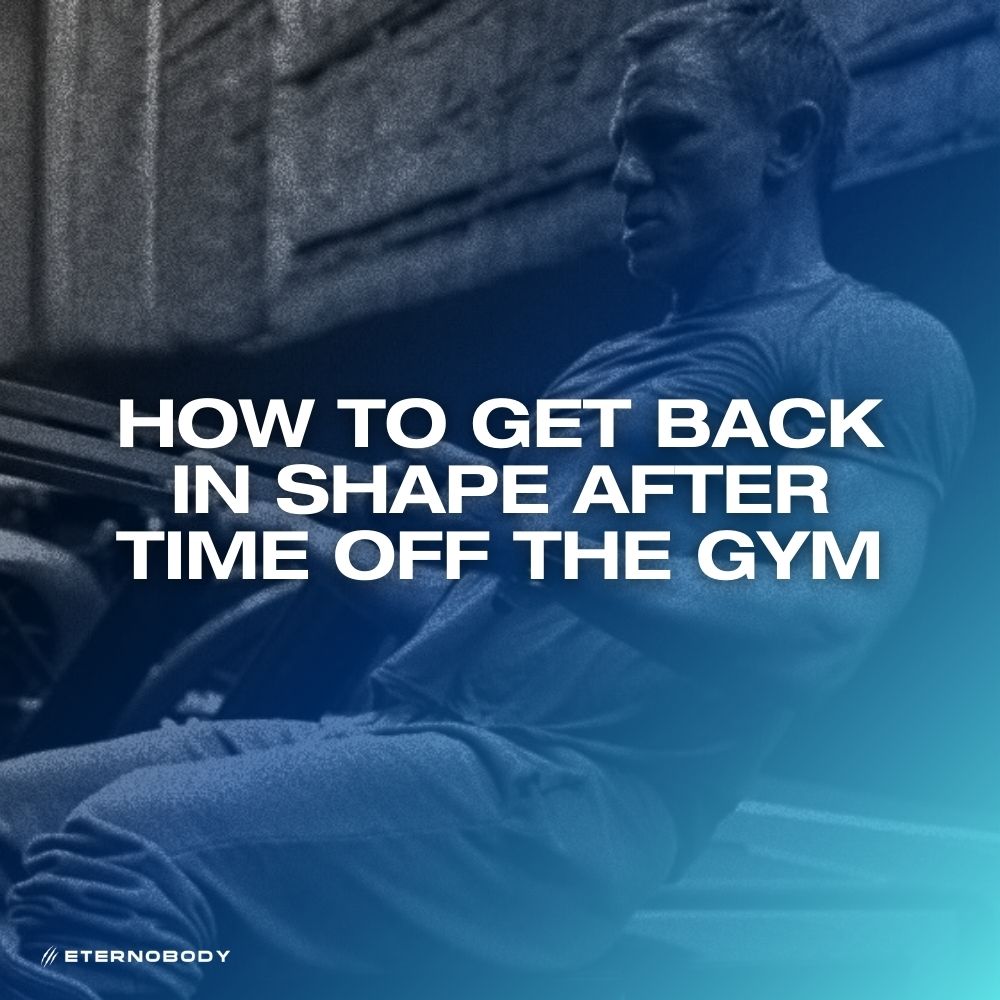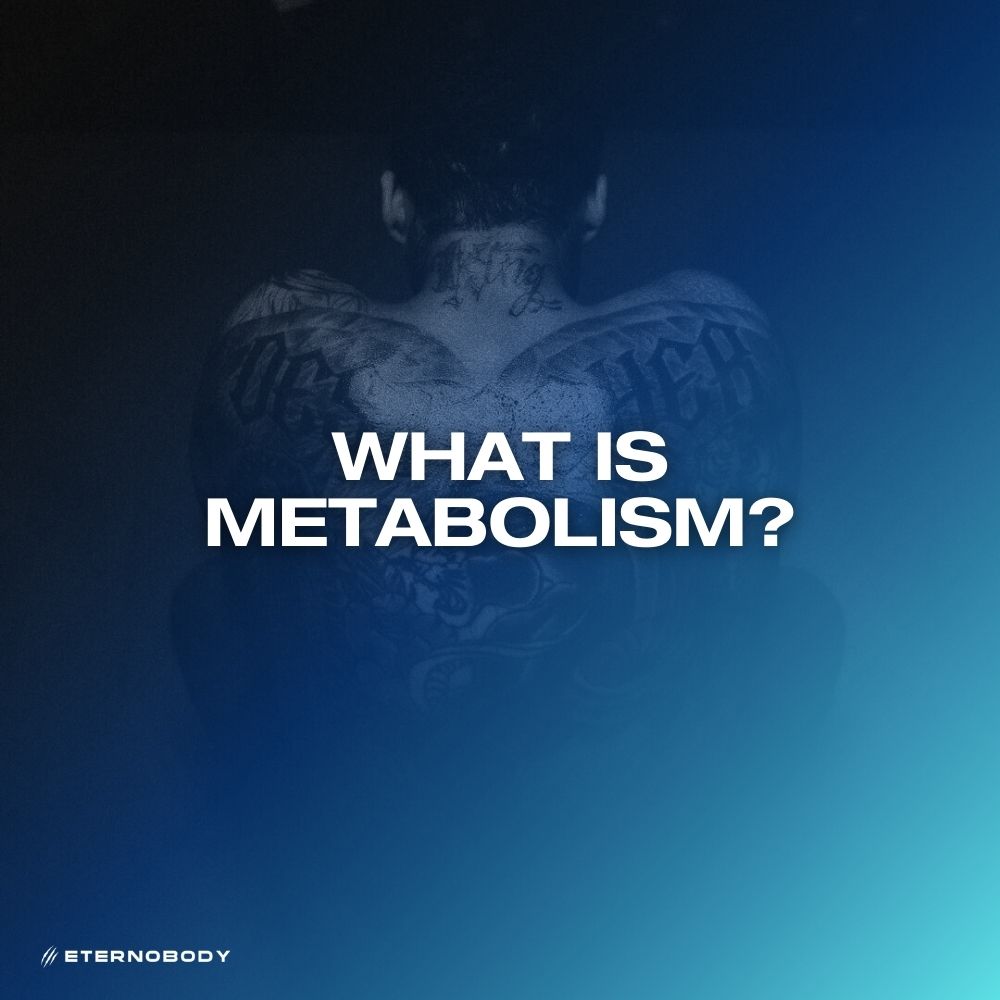
Most men want a clear answer on what the healthiest diet actually looks like.
The truth is, it’s not about cutting out whole food groups or chasing the latest trend. It’s about eating in a way that keeps your body strong, lean, and fuelled without making life miserable.
In this article, I’ll break down exactly what a healthy diet is, why extremes rarely work, and the simple rules that will keep you on track.
WHAT IS A HEALTHY DIET?
A healthy diet is one that helps you maintain good health, keep a solid body composition, and give your body the nutrients it needs to work properly. It’s not about one magic food or a strict set of rules. It’s about balance.
That means eating the right amount of calories for your body and lifestyle, not starving yourself or overeating. You also need enough protein, carbohydrates, and fats to support muscle, energy, and hormones. On top of that, your body needs vitamins, minerals, and fibre so that everything from your metabolism to your digestion works smoothly.
The foods that tick these boxes are simple. Fruits, vegetables, whole grains, lean meats, fish, dairy, nuts, seeds, pulses, and plant oils. These are nutrient-dense foods that give you quality fuel. What you want to cut back on are heavily processed foods, trans fats, and high-sugar drinks. These don’t add much beyond empty calories and long-term health problems.
IS A VEGAN DIET HEALTHY?
A vegan diet cuts out all animal products, including meat, fish, dairy, and eggs. On the plus side, it forces you to eat more fruits, vegetables, and whole grains, which are linked to longer life and lower risk of disease. These foods give you fibre, vitamins, and powerful plant compounds that support health.
The challenge comes with protein and certain micronutrients. It’s much harder to get enough high-quality, well-absorbed protein without animal products. Studies show vegans often carry less muscle than meat eaters for this reason. Deficiencies in vitamin B12, omega-3 fats, zinc, calcium, and iron are also more common.
You can make a vegan diet work by eating a wide mix of foods and using supplements. But if your goal is muscle, strength, or all-round health, it usually requires more effort to get it right compared to eating both plants and animals.
IS A VEGETARIAN DIET HEALTHY?
Vegetarians don’t eat meat, poultry, or fish, but many still include dairy, eggs, or honey. Like vegan diets, they’re full of vitamins, minerals, and fibre because of the high fruit and vegetable intake.
The difference is that including eggs and dairy makes it much easier to get enough protein and nutrients. That said, vegetarians can still run into the same problems as vegans if they don’t plan their diet. Calcium, iron, and omega-3 fats are nutrients that often need more attention.
A vegetarian diet can be very healthy when balanced well. Eggs, milk, cheese, and yogurt help cover protein needs and reduce the risk of deficiencies. Many men find this diet easier to manage than full veganism because it allows for more flexibility.
IS A CARNIVORE DIET HEALTHY?
The carnivore diet is the extreme opposite. It cuts out all plant foods and relies only on animal products. While it’s true you can survive this way, thriving is another story.
To get every vitamin and mineral, you’d have to eat all parts of the animal, including organ meats. Most people don’t, which makes deficiencies likely. For example, vitamin C is only found in trace amounts in certain organ meats, and without it your health will take a hit.
A bigger issue is fibre. It isn’t essential for survival, but eating enough fibre is linked to lower risk of cancer, heart disease, and diabetes. Plants also contain phytonutrients that aren’t technically essential but support long-term health. Cutting these out may shorten lifespan and increase disease risk.
So while a meat-only diet can keep you alive, it’s not ideal if you care about long-term health and energy.
WHAT IS THE HEALTHIEST DIET IN THE WORLD?
The healthiest diet is not about strict restriction but smart inclusion. It means eating a wide range of nutrient-rich foods while limiting the ones that cause problems when eaten in excess.
That means plenty of vegetables, fruits, whole grains, lean meats, fish, eggs, dairy, nuts, seeds, and legumes. These give you everything your body needs to perform and recover. At the same time, keep processed foods, sugary drinks, and trans fats low. That doesn’t mean you can never have them. Having a pastry or a soda now and then won’t undo your progress. The key is moderation.
This style of eating is often called “flexitarian.” Really, it just means eating like an adult. Most of your food should be whole and nutritious, with the occasional treat to keep you consistent. The focus is on variety and balance, not perfection.
10 STEPS TO EATING A HEALTHY DIET
There’s no exact formula, but these steps are a solid framework:
- Get most of your calories from whole, unprocessed foods.
- Eat the right number of calories for your weight goals.
- Aim for at least five servings of fruit and vegetables every day.
- Include protein with every meal to support muscle and recovery.
- Balance carbs and fats in a way that matches your activity levels.
- Eat seafood, poultry, eggs, and some red meat, but limit processed meats.
- Include dairy like yogurt, milk, or cheese a few times per week.
- Drink water when you’re thirsty instead of forcing gallons.
- Keep alcohol to a minimum.
- Enjoy treats in moderation, but don’t let them take over more than 20% of your diet.
Each step helps build a diet that is sustainable long-term. It’s not about rules you can’t break. It’s about creating habits that work day in and day out without making you feel restricted.
REFERENCES
Schwingshackl, L., Bogensberger, B. and Hoffmann, G. (2018). Diet Quality as Assessed by the Healthy Eating Index, Alternate Healthy Eating Index, Dietary Approaches to Stop Hypertension Score, and Health Outcomes: An Updated Systematic Review and Meta-Analysis of Cohort Studies. Journal of the Academy of Nutrition and Dietetics, 118(1), pp.74-100. doi:https://doi.org/10.1016/j.jand.2017.08.024
Springmann, M., Wiebe, K., Mason-D’Croz, D., Sulser, T.B., Rayner, M. and Scarborough, P. (2018). Health and nutritional aspects of sustainable diet strategies and their association with environmental impacts: a global modelling analysis with country-level detail. The Lancet Planetary Health, 2(10), pp.e451-e461. doi:https://doi.org/10.1016/S2542-5196(18)30206-7
Clarys, P., Deliens, T., Huybrechts, I., Deriemaeker, P., Vanaelst, B., De Keyzer, W., Hebbelinck, M. and Mullie, P. (2014). Comparison of nutritional quality of the vegan, vegetarian, semi-vegetarian, pesco-vegetarian and omnivorous diet. Nutrients, 6(3), pp.1318-1332. doi:https://doi.org/10.3390/nu6031318
O’Keefe, J.H., Torres-Acosta, N., O’Keefe, E.L., Saeed, I.M., Lavie, C.J. and Smith, S.E. (2022). A Deficiency of Nutrition Education and Practice in Cardiology. The American Journal of Medicine, 135(2), pp.155-162. doi:https://doi.org/10.1016/j.amjmed.2021.07.029




